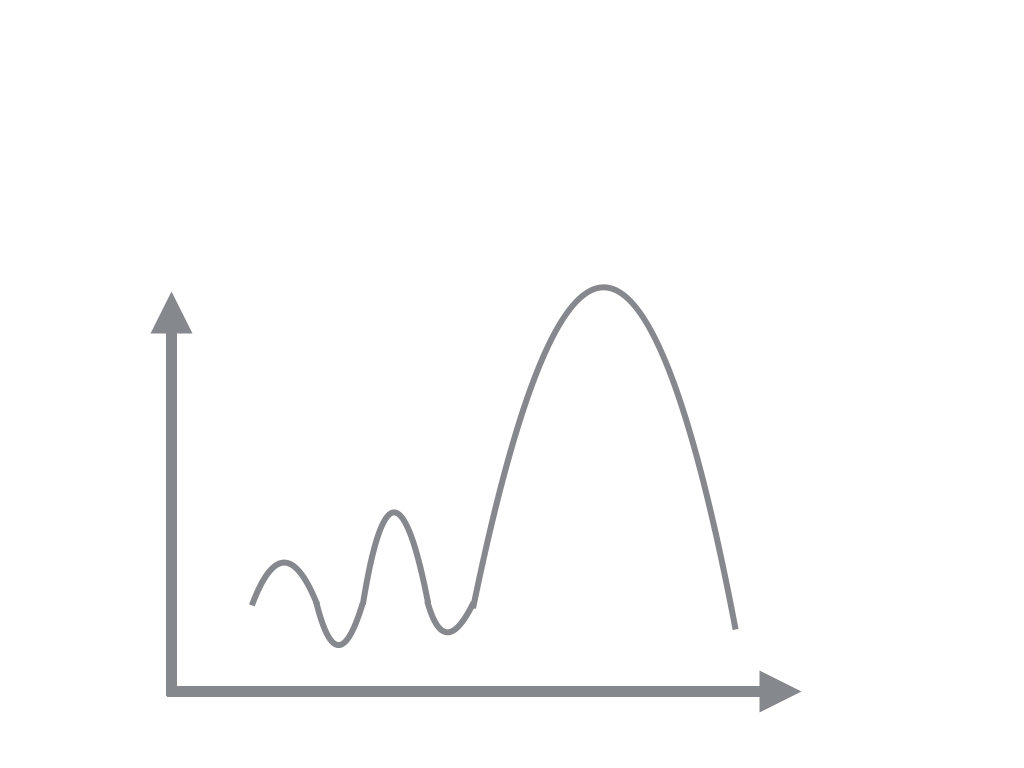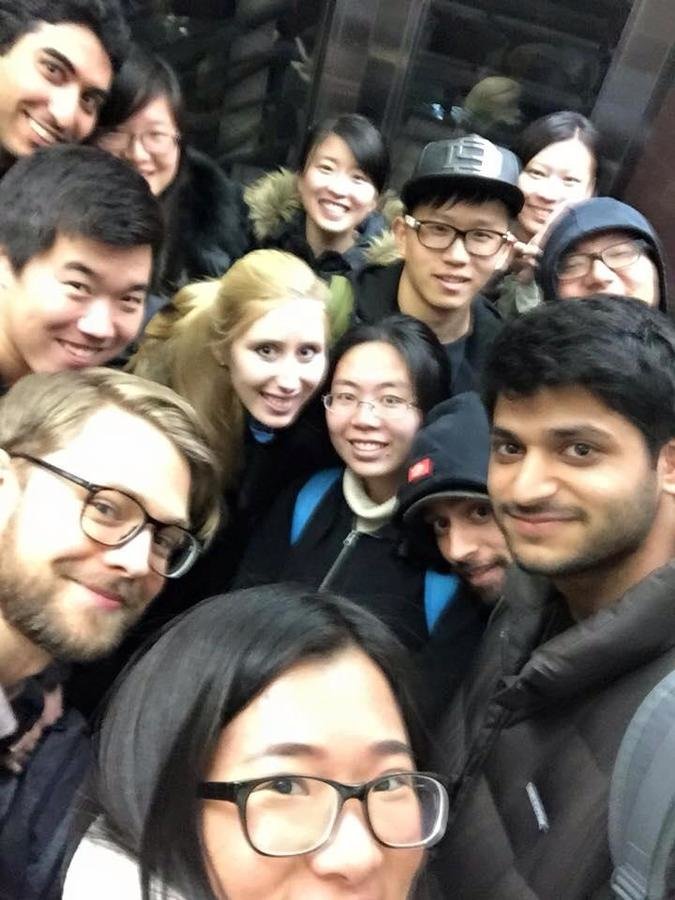
Machine Learning
Frank Qiu
Haider Shah
Stephanie Zhang
Chris Pang
Machine Learning
Frank Qiu




Chris Pang
Haider Shah
Stephanie Zhang




Intro
Algorithms
Business Value
Best Practices
The science of getting computers to act without being explicitly programmed.
-Stanford University CS 229 (Machine Learning)
What is Machine Learning?
Inference and learning with massive datasets using intelligent machines.
-UBC CSPC340 (Machine Learning & Data Mining)
A branch of artificial intelligence that relies heavily on probability statistics uses data to make predictions and learn.
- The Economist
Get some insights from a process by which computer scientists direct a program to pore through a huge database.
- Harvard Business Review

The Restaurant Case
John
Jack used to come a lot, why he hasn't showed up for a while?
Why Bill's bar is more popular?
Is Roy a slow server?

Vancouver's best selling beer
Average cost to run a restaurant
Transaction records related to Jack
......
Popular sauces
Popular restaurants
Query From Computer
Busiest hour of the week
Data Driven Decision
John
People like the happy hour in Bill's Bar so much that the keep going there even when it's not happy hour.
Roy is a great server, he sells more food, and that's why it seems like he is slow.
The Honey BBQ Rib is the best seller, and it has 10% chance of sold out during weekend. So get enough stock before weekend.
But,is that good enough?
But, Is that Good Enough?
MachineLearning.py
import os
import scipy as sp
import matplotlib.pyplot as plt
print("I'm MachineLearning") def ML(models, x, y):
if models:
if mx is None and x = 0
for x, y in zip(models):
# print "Model:",model
# print "Coeffs:",model.coeffs
plt.plot(model(x), c=color)
plt.legend(["d=%i" % m.order for m in models], loc="upper left") Python Hi, Python.

Meh~
Look!
Machine Can do it Again and Again.
MachineLearning.py
import os
import scipy as sp
import matplotlib.pyplot as plt
print("I'm MachineLearning") def ML(models, x, y):
if models:
if mx is None and x = 0
for x, y in zip(models):
# print "Model:",model
# print "Coeffs:",model.coeffs
plt.plot(model(x), c=color)
plt.legend(["d=%i" % m.order for m in models], loc="upper left") Python Hi, Python.

Top Restaurants
Other Restaurants
Factor 2
Factor 1
Machine Can do it Again and Again.
MachineLearning.py
import os
import scipy as sp
import matplotlib.pyplot as plt
print("I'm MachineLearning") def ML(models, x, y):
if models:
if mx is None and x = 0
for x, y in zip(models):
# print "Model:",model
# print "Coeffs:",model.coeffs
plt.plot(model(x), c=color)
plt.legend(["d=%i" % m.order for m in models], loc="upper left") Python Hi, Python.

Top Restaurants
Other Restaurants
Factor 4
Factor 3
Let the Machine Decide
MachineLearning.py
import os
import scipy as sp
import matplotlib.pyplot as plt
print("I'm MachineLearning") def ML(models, x, y):
if models:
if mx is None and x = 0
for x, y in zip(models):
# print "Model:",model
# print "Coeffs:",model.coeffs
plt.plot(model(x), c=color)
plt.legend(["d=%i" % m.order for m in models], loc="upper left") Python Hi, Python.

Hey John, let's talk.
Factor 1, 34, 42443, 254432 & 4342343214 are the most significant factors. Align your strategies in those factors with the best restaurants. You can beat Bill's Bar in a week.
Machine Is Better
KPI
View Span
John's View
Bill's View

Machine's View
Artificial Intelligence
Machine Learning
Data Mining


Machine Learning VS Data Mining
Data Mining discovers previously unknown patterns and knowledge
Machine Learning is used to reproduce known
patterns and knowledge, automatically apply that to other data, and then automatically those results to decision making and actions
Machine Learning Algorithms
Supervised Learning
Unsupervised Learning

Reinforced Learning
Supervised Learning

Algorithms are trained using labelled examples
Historical data predicts likely future events
Example : Credit Card Transactions
Unsupervised Learning

No Historical Labels
Goal is to explore data and find some structure within
Example : Customer Segmentation
Reinforced Learning

Learn by trial and error
Agent, Environment, Action
Example: Robotics, Gaming, Navigation
Machine Learning
is
everywhere





Machine Learning
is
Everywhere
Customized
Recommendation




Face
Recognition




Handwriting
Recognition





Ranking
webpages



Applications
Big Data
can't program
by hand
Beyond
human
capability
$48
billion
/year
Online Advertising
$11.5
/year
billion


Fraud detection systems



Gene prediction for cancer
nature disaster prediction
self-driving cars
...

- Data preparation capabilities.
- Algorithms – basic and advanced.
- Automation and iterative processes.
- Scalability.
- Ensemble modeling.

Best Practices
- GUIs for building models and interactive data exploration and visualization
- Automated model evaluation to identify the best performers.
- Easy model deployment so you can get repeatable, reliable results quickly.

Matching Tools to Processes
SAS
Python
Java

Software
http://machinelearningmastery.com/
https://www.coursera.org/course/ml

Further Learning
http://www.research.ibm.com/foiling-financial-fraud.shtml
http://www.eecs.tufts.edu/~dsculley/papers/ad-click-prediction.pdf
http://www.nytimes.com/2015/02/12/technology/personaltech/googles-time-at-the-top-may-be-nearing-its-end.html
http://www.quora.com/What-are-some-interesting-possible-applications-of-machine-learning
http://www.forbes.com/sites/85broads/2014/01/06/six-novel-machine-learning-applications/
http://www.wsj.com/articles/SB10001424052748703834604575365310813948080
Copy of Machine Learning - Mar 28 (Ver2)
By Haider Shah
Copy of Machine Learning - Mar 28 (Ver2)
Machine Learning Presentation
- 1,587


